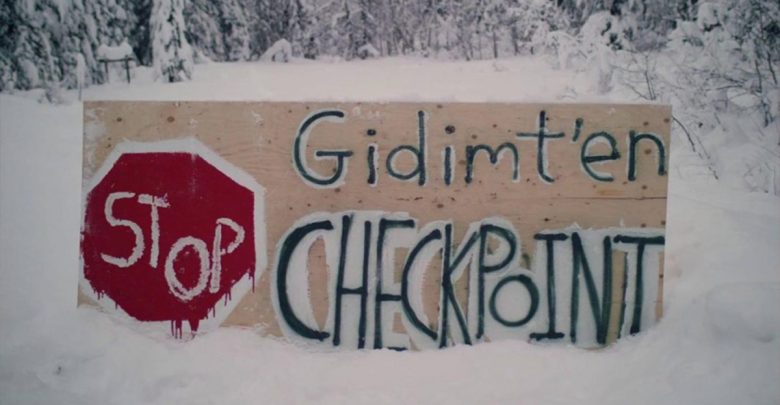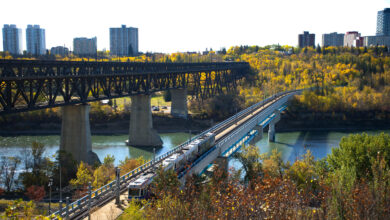 Supplied via CBC
Supplied via CBCA group of Gidimt’en protesting the Coastal Gaslink pipeline set up a roadblock near Houston, British Columbia earlier this month. On January 7, RCMP officers came to enforce an injunction on their checkpoint. Resistance towards this injunction lead to the arrest of 14 individuals and the dismantling of the checkpoint.
I’m not going to lie to you, this sucks. Interactions between officers and Indigenous groups play out like this all the time; this is just one event in a long line of hostile contact. It’s hard to see how else it could have played out given the current state of reconciliation in Canada.
Looking at this issue from through the lens of Canadian law, the RCMP’s actions were justified. According to the Canadian Criminal Code Section 423(1)(g), any individual is in violation of the law when they are “blocking or obstructing a highway.” The Gidimt’en checkpoint was set up on Morice West Forest Service Road in British Columbia, which constitutes a highway under legal terms. Furthermore, the RCMP were backed by an injunction approved by the Supreme Court of British Columbia.
But this only looks at the issue from a colonial perspective. During one protest of the injunction in Calgary, protesters began chanting “Consent. Sovereignty!” This speaks at a deep level to issues Indigenous peoples face as they continue to be deprived of their sovereignty by colonialist governments. Indigenous groups have been wrongfully stripped of their ability to make and operate their own laws again and again.
One can look to the Oka crisis of 1990, where a Mohawk burial ground was staged for transformation into a golf course despite protest from the Mohawk peoples. As if ignoring their pleas to gain ownership of the burial site for more than 150 years wasn’t enough, the Canadian government still wouldn’t hand over the land to its rightful owners, even after the construction of the golf course was cancelled.
Even 20 years later, Canada was still denying Indigenous right and title. In 2007, Canada was one of four countries in the whole world to oppose the United Nations Declaration on the Rights of Indigenous Peoples. Canada later declared support of the declaration in 2010, but has since been slow to walk the talk. Bill C-262, designed to “ensure that the laws of Canada are in harmony with the [UNDRIP],” is slowly making its way through Parliament.
Considering all of this ⸺ the needs of Indigenous groups in Canada and the support of Indigenous right and title from the UN ⸺ Indigenous groups should be seen as autonomous, separate from the settler culture of Canada and not restricted by Canadian law.
For many, the colonial era may feel like part of the past, but as anthropologist Audra Simpson puts it, “settler colonialism cannot be relegated to the past as something with only residual effects; rather, we need to understand it as an ongoing structure of oppression in which settlers actively maintain their rights to occupy indigenous territories in the present.”
From a settler point of view, many issues Indigenous peoples face are seemingly done and over with. From an Indigenous perspective, however, these issues become more pressing and significant as time goes on and colonial exploitation continues. Therefore, standing up to the development of a pipeline through Indigenous lands without their consent, even if it’s illegal under settler colonial law, is the only way to show that Indigenous people can demonstrate that they deserve autonomy and sovereignty. While Canadian law certainly gives motive to the actions of the RCMP, it misses why the protesters put themselves in harm’s way.
Emphasis should be put on the fact that the RCMP officers were just doing their job. The issue doesn’t lie behind the motives and actions of the individual officers, but rather the federal government’s lack of action in regards to healing the relationship between settler culture and Indigenous culture in Canada. Significant strides must be made to recognize the sovereignty Indigenous peoples have been deprived of by the federal government, and this requires the feds to take the initiative and do things the Indigenous way.
Maybe this means Indigenous decision-making playing a part at the federal level, or maybe it just means consulting individual Indigenous groups to ensure that they are satisfied with their relationship with Canada. Without this, interactions between Indigenous protesters and government officials will continue to play out the way it did near Houston, BC.




